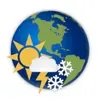Noaa Live Radio Stations
Radio Stations
Choose a Genre
Understanding NOAA and Its Role in Weather Monitoring through Radio
The National Oceanic and Atmospheric Administration (NOAA) is a pivotal government agency that plays a key role in safeguarding communities across the United States through its comprehensive weather and climate monitoring efforts. As part of the U.S. Department of Commerce, NOAA is responsible for monitoring and forecasting weather patterns, studying ocean resources, and conducting critical research related to climate change. While NOAA is not a traditional genre of radio stations, it operates a vital network of radio stations that help disseminate important weather and emergency information to the public.
One of the most prominent features of NOAA's broadcasting efforts is the NOAA Weather Radio System, a nationwide network designed to provide continuous updates and alerts about weather conditions. This system is a life-saving tool, as it broadcasts weather forecasts, warnings, and alerts around the clock to keep communities informed of severe weather events such as hurricanes, tornadoes, floods, and blizzards. These broadcasts also provide updates on other natural hazards, including tsunamis, earthquakes, and volcanic eruptions, ensuring the public is prepared for various environmental threats.
The NOAA weather stations operate on a special frequency, which allows them to transmit detailed information on vital aspects of weather, including temperature, wind speed, precipitation, and storm warnings. These updates are crucial for individuals and emergency responders to make informed decisions and take timely actions to protect lives and property. The 24/7 nature of the broadcasts means that listeners can rely on NOAA's radio stations for real-time information, even in the midst of a crisis.
Additionally, NOAA operates other specialized radio stations beyond its weather radio system. These include stations that serve important research and communication functions, such as monitoring ocean currents, weather patterns, and environmental data. Some of these stations are used to communicate with ships at sea, enabling the agency to track oceanic conditions and provide valuable data for scientific studies related to climate change and oceanography.
NOAA's radio stations are not only important tools for weather alerts but also serve as an integral part of the agency's broader mission to improve environmental safety and public awareness. In the event of a natural disaster or emergency, the ability to receive real-time, accurate information can make all the difference in protecting people and minimizing the impact of adverse weather conditions.
In conclusion, NOAA's weather and research radio stations play an essential role in ensuring public safety and environmental understanding. Their 24/7 broadcasts of weather data, alerts, and updates have proven invaluable in times of crisis, reinforcing the importance of maintaining a reliable, government-operated network for weather and emergency information. As climate and weather patterns continue to evolve, NOAA’s role in broadcasting critical data to the public remains a vital part of America’s disaster preparedness and environmental stewardship efforts.
The National Oceanic and Atmospheric Administration (NOAA) is a pivotal government agency that plays a key role in safeguarding communities across the United States through its comprehensive weather and climate monitoring efforts. As part of the U.S. Department of Commerce, NOAA is responsible for monitoring and forecasting weather patterns, studying ocean resources, and conducting critical research related to climate change. While NOAA is not a traditional genre of radio stations, it operates a vital network of radio stations that help disseminate important weather and emergency information to the public.
One of the most prominent features of NOAA's broadcasting efforts is the NOAA Weather Radio System, a nationwide network designed to provide continuous updates and alerts about weather conditions. This system is a life-saving tool, as it broadcasts weather forecasts, warnings, and alerts around the clock to keep communities informed of severe weather events such as hurricanes, tornadoes, floods, and blizzards. These broadcasts also provide updates on other natural hazards, including tsunamis, earthquakes, and volcanic eruptions, ensuring the public is prepared for various environmental threats.
The NOAA weather stations operate on a special frequency, which allows them to transmit detailed information on vital aspects of weather, including temperature, wind speed, precipitation, and storm warnings. These updates are crucial for individuals and emergency responders to make informed decisions and take timely actions to protect lives and property. The 24/7 nature of the broadcasts means that listeners can rely on NOAA's radio stations for real-time information, even in the midst of a crisis.
Additionally, NOAA operates other specialized radio stations beyond its weather radio system. These include stations that serve important research and communication functions, such as monitoring ocean currents, weather patterns, and environmental data. Some of these stations are used to communicate with ships at sea, enabling the agency to track oceanic conditions and provide valuable data for scientific studies related to climate change and oceanography.
NOAA's radio stations are not only important tools for weather alerts but also serve as an integral part of the agency's broader mission to improve environmental safety and public awareness. In the event of a natural disaster or emergency, the ability to receive real-time, accurate information can make all the difference in protecting people and minimizing the impact of adverse weather conditions.
In conclusion, NOAA's weather and research radio stations play an essential role in ensuring public safety and environmental understanding. Their 24/7 broadcasts of weather data, alerts, and updates have proven invaluable in times of crisis, reinforcing the importance of maintaining a reliable, government-operated network for weather and emergency information. As climate and weather patterns continue to evolve, NOAA’s role in broadcasting critical data to the public remains a vital part of America’s disaster preparedness and environmental stewardship efforts.
